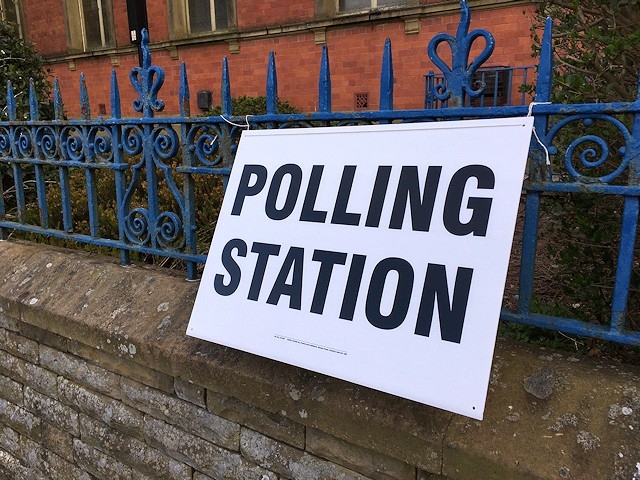Changes to the voting system for mayoral election this May
Date published: 03 April 2024

Voters in the borough will go to the polls on 2 May
A major change has been made to Greater Manchester’s mayoral election with the way votes are cast and counted changing from the supplementary vote (SV) system to first-past-the-post, which is used in parliamentary and local elections.
Andy Burnham is standing for a third term on 2 May, and as of Tuesday (2 April) candidates from the Conservatives, Liberal Democrats, Green Party, Reform UK and an independent have already confirmed that they are standing. The deadline for nominations to be submitted is Friday 5 April.
Mr Burnham has been the city-region’s mayor since 2017, winning elections that year and in 2021. However, those elections were run differently to the 2024 contest.
The first polls used the supplementary vote (SV) system, which saw the electorate put two crosses on their ballot paper. They selected a first-preference and second-preference candidate.
In SV, if no one secured more than 50 percent of the first-preference votes, then the top two candidates go into a run-off election. This head-to-head poll sees second-preference votes come into play.
There, all of the second-preference votes from the candidates who were eliminated are counted. Then, the winner of the election is the politician from the run-off with the most first and second preference votes.
Read more: Under four weeks left to apply for free voter IDPublished: 30 March 2024
Proponents of SV say it encourages politicians to appeal to a wider group of voters, so they hold broader appeal across a city, constituency, or ward. Opponents claim that it does not guarantee a candidate gets a majority of support, and also leads to voters second-guessing who might reach the run-off.
In Greater Manchester, the system was never used to its full potential as Andy Burnham claimed victory on first-choice votes alone. In 2017, he secured 63.4 percent of the first votes, and in 2021 he won 67.3 percent.
However, SV is no longer being used in mayoral elections in the UK.
“Mayoral elections and Police and Crime Commissioner elections previously used the Supplementary Vote system, where voters could choose a first and second choice vote. Now, voters will choose a single candidate on the ballot paper. This is the same system as UK Parliamentary elections and local elections in England,” the Electoral Commission has confirmed.
It was replaced in mayoral elections by first-past-the-post, which is used in parliamentary elections, by the Elections Act 2022. First-past-the-post sees voters simply choose one candidate, with the person with the most votes declared the winner.
The change means voters have a simpler decision to make at the ballot box on 2 May, but it also could lead to the new mayor having a narrower base of support.
Ethan Davies, Local Democracy Reporter
Do you have a story for us?
Let us know by emailing news@rochdaleonline.co.uk
All contact will be treated in confidence.
Most Viewed News Stories
- 1Failing care home shut by health watchdog following safety concerns
- 2Woman of Rochdale 2024 – Lorenza Pye
- 3Visually impaired campaigners say controversial cycle scheme is unsafe for them
- 4Man charged in connection with assault on Christmas Eve in Sudden
- 5Long-awaited hydrotherapy pool opens for public use in Castleton
To contact the Rochdale Online news desk, email news@rochdaleonline.co.uk or visit our news submission page.
To get the latest news on your desktop or mobile, follow Rochdale Online on Twitter and Facebook.


